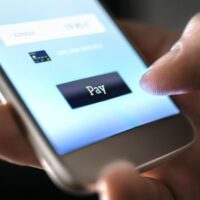Pay Apps In Florida Construction

Consumers across the globe increasingly rely on their cell phones for financial transactions of all kinds, but the term “pay app” has an entirely different meaning for Florida contractors. Your payment application is how you request funds for the labor and materials you supply, but it is important to remember a key point: You get paid for what you document, which could be very different from the work you complete. There can be a major disconnect between these two concepts, and your pay app is how you get them on the same page.
On the surface, a pay app is basically an invoice; in practice, they require meticulous attention to detail and knowledge of the essentials. Errors and omissions can lead to delays in payment or disputes over what is owed. You can count on a Florida contractor representation attorney to fill you in on details, though an overview of pay apps and what to include is helpful.
Understanding Pay Apps
Due to the many moving parts and parties involved with a typical construction project, many general contractors require lower-tier contractors to request payment via payment applications. Though it is basically an invoice, a pay app must go into greater detail to include all information related to the materials and services provided during the designated time period. In other words, you will need to submit additional documents and details to support your request for payment; a pay app without essential paperwork is not likely to get paid.
Items to Include in Pay Apps
The cover page should provide an overview on the status of the project, so you must include:
- The project name;
- Details on the owner, general contractor, and design professionals;
- The pay app number, running sequentially;
- The dates covered by the pay app;
- The total construction contract dollar value;
- Any change orders;
- The value of work provided and materials furnished during the period covered by the pay app;
- How much you have been paid so far through previous pay apps;
- The invoice amount; and
- The balance remaining for additional stages of the project.
Lien Waivers and Pay Apps
Subcontractors and lower-tier contractors have mechanics liens rights because they are not in direct privity of contract with the owner and/or general contractor. This factor impacts pay apps because a party could request a lien waiver after submitting the request but before getting paid. You might be asked to sign a lien waiver in exchange for payment, but keep in mind that you are only releasing your rights related to the amount listed on the pay app.
Contact Our Palm Beach County Contractor Representation Lawyers Today
It is important to know the basics about how pay apps work in Florida construction projects, but you should trust a lawyer to guide you when it comes to details. At Linkhorst & Hockin, P.A., our core practice area is construction law, including contractor representation. For more information, please call 561-626-8880 or go online to set up a consultation at our offices in Jupiter, FL.
Source:
aiacontracts.org/contract-documents/19661-application-and-certificate-for-payment
